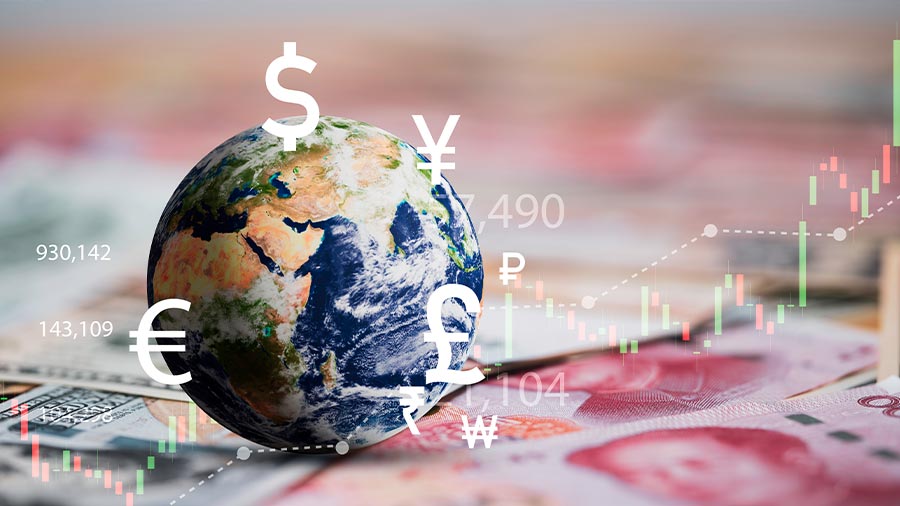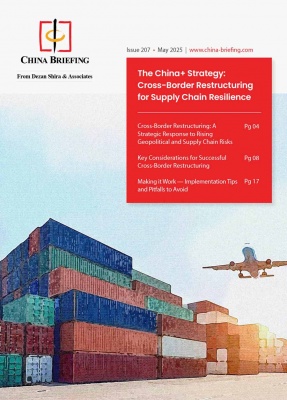China-Brazil Economic Ties: Trade, Investment, and Opportunities
- Brazil ranks as China’s ninth-largest trading partner, while China holds the position of being Brazil’s largest trade partner. In 2023, the bilateral trade volume between China and Brazil reached US$181.53 billion, marking a 6.1 percent year-on-year increase. Brazil remains China’s largest source of agricultural imports.
- Chinese investments in Brazil are primarily concentrated in energy, mining, agriculture, infrastructure, and manufacturing. Conversely, Brazilian investments in China are mainly focused on compressor production, coal, real estate, auto parts manufacturing, and the textile and apparel industries.
- As the economic and trade relationship between China and Brazil continues to deepen, there is significant growth potential for trade and investment in areas such as agriculture, new energy products, electric and hybrid vehicles, high-tech products, infrastructure construction, and service industry cooperation.
China and Brazil officially established diplomatic relations in 1974. The two countries have maintained amiable relations in the decades since and in 1993 established a strategic partnership to further mutual interests and enhance bilateral relations.
China-Brazil relations are based primarily on bilateral trade and investment, which have boomed over the past decade.
During his first presidency from 2003 to 2010, when his approval ratings consistently remained above 80 percent, Lula sought to strengthen ties with China, recognizing the growing economic power of the country. He visited China four times during his tenure, and in 2009, China overtook the US to become Brazil’s largest trading partner and has remained so ever since.
This development can be framed within the commodities boom of the 2000s, which created a favorable environment not only for Brazil, but also for other Latin American (LatAm) countries, such as Argentina, Ecuador, Bolivia, and Venezuela to pursue closer economic ties with China, which was seen as a key market for their exports and a potential source of investment and technology transfer.
Moreover, both Brazil and China are part of the BRICS bloc of nations (which also includes Russia, India, and South Africa). The BRICS grouping holds annual summits to foster cooperation on trade, investment, and social development. China hosted the 14th BRICS Summit in June 2022, and Brazil will assume the rotating precedence in 2025.
China-Brazil relations cooled somewhat when Jair Bolsonaro took the presidential office in 2019, as the former president and his international governance advisors moved closer to the US, then under the presidency of Donald Trump.
Since President Lula took office at the beginning of 2023, bilateral relations have improved significantly, with Lula seeking to rekindle the relationship with China and showing an eagerness to develop bilateral trade and investment ties.
At the end of March 2023, China and Brazil signed an agreement to settle all trade in the two countries’ respective currencies, rather than in US dollars. This agreement, as well as remarks made by President Lula during his visit to China, show that Brazil is keen to disrupt the US dollar’s dominance as the main trade currency, which aligns with Beijing’s aspirations to internationalize the renminbi.
In April 2023, China and Brazil signed 15 bilateral agreements estimated to be worth around US$10 billion during the state visit by Brazilian President Luiz Inácio Lula da Silva to China.
This article explores the economic ties between China and Brazil in trade and investment, highlighting potential opportunities for investors from both countries.
Opportunities for China-Brazil businesses
China and Brazil have a strong foundation of cooperation in the economic and trade sectors, with significant potential for trade and investment across various fields:
- Agriculture and agricultural trade: As a global agricultural powerhouse, Brazil boasts abundant land resources and advanced agricultural technology, while China excels in refined management and a comprehensive agricultural industry chain. The two countries have deepened their cooperation in agriculture, leveraging their complementary strengths. Notably, trade in agricultural products such as soybeans and cotton has achieved remarkable results, and this trend is expected to continue and expand.
- Energy and mineral resources trade: Brazil has rich reserves of oil, natural gas, and minerals, while China has significant advantages in the extraction, processing, and technology of energy and mineral resources. Therefore, there is vast potential for cooperation in the oil, gas, and mining sectors.
- Manufacturing and investment: Although Brazil has unique advantages in manufacturing, China, with its large market size, comprehensive industrial system, and strong manufacturing capabilities, has become an important investment and trade partner for Brazil. As China undergoes economic restructuring and upgrades, the demand for high-end manufacturing will increase, creating more opportunities for bilateral investment in this sector.
- Infrastructure construction: Brazil is committed to improving its national infrastructure, and China has extensive experience and technical expertise in this field. Thus, there is significant potential for cooperation in infrastructure construction, particularly in transportation, urban development, and communications.
- Service industry cooperation: As China’s economy transitions towards a service-oriented model, the demand for external markets in financial services, telecommunications, and professional services is gradually increasing. Brazil also has strong capabilities and needs in these areas, making enhanced cooperation in the service industry a key direction for future China-Brazil economic and trade relations.
- Technological innovation and R&D: With the intensifying global competition in technology, innovation has become a crucial driver of economic development. Brazilian investors might focus on China’s technological innovation sectors, including artificial intelligence, biotechnology, and new energy. By investing in Chinese tech companies or research institutions, they can share in China’s technological advancements and enhance their competitiveness in the global tech arena.
China-Brazil bilateral trade
Since the establishment of diplomatic relations between China and Brazil, bilateral economic and trade relations have made significant progress. Especially since 2008, Brazil’s exports to China have continuously increased, solidifying China’s position as Brazil’s main trading partner. Brazil is China’s ninth-largest trading partner, while China is Brazil’s largest.
According to Chinese customs statistics, the bilateral trade volume between China and Brazil in 2023 was US$181.53 billion, a year-on-year increase of 6.1 percent. Of this, China’s exports to Brazil amounted to US$59.11 billion, a year-on-year decrease of 4.3 percent, while imports from Brazil totaled US$122.42 billion, a year-on-year increase of 11.9 percent.
Brazil exports to China
China is Brazil’s biggest trading partner and has been so for 14 consecutive years. It was also the first LatAm country to exceed US$100 billion in annual trade with China. Brazil is also one of the few countries in the world that has a trade surplus with China – US$633.1 billion in 2023 – exporting more to China than it imports.
|
Brazil’s Top Exports to China, 2023 |
|||
| Value (US$ billion) | Annual growth in value between 2019-2023 | Share in Brazil’s exports, % | |
| Oil seeds and oleaginous fruits; miscellaneous grains, seeds, and fruit | 38.9 | 19 | 72 |
| Ores, slag and ash | 20.7 | 8 | 59 |
| Mineral fuels, mineral oils and products of their distillation; bituminous substances; mineral waxes
|
20.1 | 10 | 36 |
| Meat and edible meat offal
|
8.3 | 18 | 38 |
| Pulp of wood or of other fibrous cellulosic material; recovered (waste and scrap) paper or paperboard
|
3.8 | 4 | 48 |
| Cereals
|
3.6 | 399 | 24 |
| Sugars and sugar confectionery
|
1.9 | 42 | 12 |
| Cotton
|
1.5 | 14 | 47 |
Source: ICT Trade Map
In 2023, Brazil continued to be China’s largest source of agricultural imports. Brazil exported agricultural products worth US$58.618 billion to China, accounting for over 50 percent of Brazil’s total trade with China and 24.85 percent of China’s overall agricultural imports. The main export products included soybeans, corn, beef, meat products, sugar, and coffee beans.
Brazil is China’s largest supplier of soybeans, chicken, and sugar. Exports of key agricultural products like corn to China have also seen rapid growth. According to data from the General Administration of Customs of China, in 2023, China imported 69.95 million tons of soybeans from Brazil, a 29 percent year-on-year increase. In terms of corn, China imported a total of 12.81 million tons from Brazil in 2023, accounting for 47 percent of China’s total corn imports.
For many years, China has been the largest export market for Brazilian beef. In 2023, Brazilian beef exports to China accounted for 54.9 percent of Brazil’s total beef exports. In 2024, the number of Brazilian meat companies authorized to export to China increased from 106 to 144.
Additionally, Brazilian companies have participated in the China International Import Expo (CIIE) for six consecutive years. Brazilian meat, honey, propolis, wine, sparkling wine, and coffee have become increasingly familiar to Chinese consumers.
The Brazilian Coffee Exporters Council (Cecafé) released data predicting that Brazil’s coffee exports to China will increase by 65 percent this year compared to last year. According to the International Coffee Organization, Brazil has long been the world’s largest coffee producer, with an annual output typically exceeding 50 million bags, each weighing about 60 kilograms, nearly twice that of the second-largest producer, Vietnam. Meanwhile, China’s coffee consumption market is rapidly expanding. Data shows that in 2023, the size of China’s coffee market reached approximately RMB 265.4 billion (US$36.5 billion), with an average annual compound growth rate of 17.14 percent over the past three years. It is expected that by the end of 2024, the market size will grow to RMB 313.3 billion (US$43.1 billion). Eduardo Heron, Data Director of Cecafé, stated that in 2022, Brazil exported 422,000 bags of coffee to China. In 2023, this number increased to 1.5 million bags, an unprecedented growth rate in the history of Brazilian coffee. Cecafé predicts that this year, Brazil’s coffee exports to China will continue to grow significantly, reaching 2.5 million bags, a 65 percent increase from last year’s 1.5 million bags. The total export value is expected to reach US$525 million (RMB 3.722 billion).
Brazil is also expanding the variety of agricultural products exported to China, especially cash crops and high-value-added agricultural products such as berries, nuts, and cocoa.
Trade between China and Brazil is expected to remain strong over the coming years, with Brazil particularly keen to take advantage of China’s growing economy and increasingly wealthy middle class to increase the volume and value of its exports.
China exports to Brazil
|
China’s Top Exports to Brazil, 2023 |
|||
| Value (US$ billion) | Annual growth in value between 2019-2023 | Share in Brazil’s exports, % | |
| Electrical machinery and equipment and parts thereof; sound recorders and reproducers, television | 14.3 | 15 | 2 |
| Nuclear reactors, boilers, machinery, and mechanical appliances; parts thereof | 9.0 | 19 | 2 |
| Vehicles other than railway or tramway rolling stock, and parts and accessories thereof | 4.1 | 32 | 2 |
| Organic chemicals | 3.6 | 17 | 5 |
| Plastics and articles thereof | 2.3 | 21 | 2 |
| Iron and steel | 2.3 | 45 | 3 |
| Miscellaneous chemical products | 1.7 | 37 | 4 |
| Fertilizers | 1.6 | 37 | 16 |
Source: ICT Trade Map
China primarily exports machinery, computer and communication technology equipment, instruments, textiles, steel, and transportation equipment to Brazil. Among these, new energy products, electric and hybrid vehicles, and high-tech products have significant growth potential.
In the first quarter of 2023, China’s exports to Brazil reached RMB 114.28 billion (approx. US$16.1 billion), a 25.7 percent increase. According to data from Brazilian government departments and industry associations, in the first four months of 2024, China’s passenger car exports to Brazil grew by 372.4 percent, totaling US$762 million, a record high for the same period.
Chinese electric vehicles performed even more impressively in the Brazilian market—sales reached 48,000 units in the first four months of 2024, eight times the number from the same period last year. Chinese electric vehicles accounted for 36.2 percent of Brazil’s total imported electric vehicles. Currently, electric vehicles have become the fourth-largest category of Chinese exports to Brazil. Reports from the Brazilian Electric Vehicle Association indicate that BYD, Chery, and Great Wall were among the best-selling electric vehicle brands in Brazil in 2023.
China-Brazil bilateral investment
Brazil is China’s largest investment destination in Latin America. According to statistics from China’s Ministry of Commerce (MOFCOM), in 2022, China’s direct investment flow to Brazil was US$224 million. By the end of 2022, China’s direct investment stock in Brazil reached US$3.41 billion.
|
China FDI in Brazil, 2018-2022 |
|||||
| 2018 | 2019 | 2020 | 2021 | 2022 | |
| FDI newly added (US$ million) | 427.7 | 859.9 | 312.6 | 146.5 | 223.9 |
| FDI in stock (US$ million) | 3,812.5 | 4,434.8 | 3,205.1 | 3,007.7 | 3,410.0 |
Additionally, in 2022, Brazil’s actual investment in China amounted to US$25.81 million. By the end of 2022, Brazil’s cumulative actual investment in China totaled US$790 million.
A large portion of China’s investment in Brazil has been directed towards the energy sector, particularly electricity. However, Chinese investment in Brazil is diversifying, with increasing funds flowing into agriculture, finance, and information technology (IT). Recent years have seen a rise in Chinese investments in petroleum, electrical power, new and green energy, infrastructure, agriculture, manufacturing, communications, and e-commerce.
As in many other parts of the world, China has invested heavily in Brazilian infrastructure projects, despite Brazil not yet participating in China’s Belt & Road Initiative (BRI). Some recent significant Chinese investment projects in Brazil include:
- A 500-kV power transmission line undertaken by China’s State Grid Brazil Holding Company, currently under construction in Goiânia, the capital of Goiás state in central Brazil.
- A Smart City Technology and Cultural Exchange Center established by CRRC Changchun Railway Vehicles Co., Ltd in São Paulo.
- An LDB wind power expansion project by CGN Brazil Energy Holdings Co., Ltd., a branch of China General Nuclear Power Group, which began operations in November 2021. Another TN wind power project is planned for completion and operation by June 2023.
- The Gas Natural Açu (GNA) project at the Port of Acu in Rio De Janeiro, invested in by China’s State Power Investment Corporation (SPIC). The first phase of the project has already begun operations, and the second phase was officially launched in 2022, with operations scheduled to start in 2025.
Several Chinese financial institutions have also established a presence in Brazil to provide financial services and facilitate trade and investment between the two countries. These institutions include the Bank of China, Industrial and Commercial Bank of China (ICBC), China Construction Bank (CCB), Bank of Communications (BOC), Agricultural Bank of China (ABC), China Development Bank (CDB), and Sinosure.
Moreover, Chinese technology companies have entered the Brazilian market. For instance, the consumer electronics company Lenovo has employed over 1,600 local employees in Brazil and invested BRL 500 million (approximately US$72.6 million) to establish a joint research and development department in the country. According to Lenovo’s Brazil representative, Yu Jun, the company has continuously enhanced its digital intelligent manufacturing capabilities in Brazil, empowering local development with “Made in China” technology. Lenovo’s market share in Brazil’s personal computer market has surged from 3.56 percent in 2012 to 20.44 percent in 2023.
As a global agricultural powerhouse, Brazil and China have deepened their cooperation in agriculture and agricultural products. Brazil’s advanced agricultural technology, ample and high-quality land resources, and favorable climate conditions complement China’s comprehensive agricultural industry chain and refined management model. Since its establishment at the end of 2017, Longping Agriculture Development Co., Ltd. has combined the industrial advantages of both countries, leveraging extensive germplasm resource research experience, high-intensity research investment, and refined management methods to secure a position in Brazil’s high-end and mid-to-high-end corn seed market, becoming a well-known local seed company. According to the company’s general manager, Shi Liang, introducing Chinese production materials to Brazil will further reduce local agricultural production costs, enhance the international competitiveness of Brazilian agricultural products, and allow China to enjoy high-quality and affordable imported Brazilian agricultural products.
China-Brazil bilateral agreements in trade and investment
Trade agreements
China and Brazil have not yet signed a free trade agreement. The main bilateral economic and trade agreements that have been signed include:
| Agreement Name | Signing Date |
| Trade Agreement between the Government of the People’s Republic of China and the Government of the Federative Republic of Brazil | January 7, 1978 |
| Maritime Transport Agreement between the Government of the People’s Republic of China and the Government of the Federative Republic of Brazil | May 22, 1979 |
| Supplementary Protocol to the Trade Agreement between the Governments of China and Brazil | May 29, 1984 |
| Memorandum of Understanding on Trade and Investment Cooperation between the Ministry of Commerce of China and the Ministry of Foreign Affairs of Brazil | November 12, 2004 |
| Memorandum of Understanding on E-commerce Cooperation between the Ministry of Commerce of China and the Ministry of Industry, Foreign Trade, and Services of Brazil | September 1, 2017 |
| Memorandum of Understanding on Service Sector Cooperation between the Ministry of Commerce of China and the Ministry of Economy of Brazil | November 13, 2019 |
| Memorandum of Understanding on Strengthening Investment Cooperation between the Ministry of Commerce of China and the Ministry of Economy of Brazil | November 13, 2019 |
| Memorandum of Understanding on Trade Facilitation Working Group between the Ministry of Commerce of China and the Ministry of Foreign Affairs and the Ministry of Development, Industry, Trade, and Services of Brazil | April 14, 2023 |
Bilateral investment protection agreement
In April 1994, China and Brazil signed the “Agreement on Encouragement and Reciprocal Protection of Investments.” Like other bilateral investment protection agreements signed by the Brazilian government, this agreement has not yet been ratified by the Brazilian Congress.
Agreement to avoid double taxation
In August 1991, China and Brazil signed the “Agreement between the Government of the People’s Republic of China and the Government of the Federative Republic of Brazil for the Avoidance of Double Taxation and the Prevention of Fiscal Evasion with Respect to Taxes on Income.” In May 2022, the State Taxation Administration of China and the Ministry of Economy of Brazil signed a protocol to amend the 1991 agreement and its protocol.
About Us
China Briefing is one of five regional Asia Briefing publications, supported by Dezan Shira & Associates. For a complimentary subscription to China Briefing’s content products, please click here.
Dezan Shira & Associates assists foreign investors into China and has done so since 1992 through offices in Beijing, Tianjin, Dalian, Qingdao, Shanghai, Hangzhou, Ningbo, Suzhou, Guangzhou, Haikou, Zhongshan, Shenzhen, and Hong Kong. We also have offices in Vietnam, Indonesia, Singapore, United States, Germany, Italy, India, and Dubai (UAE) and partner firms assisting foreign investors in The Philippines, Malaysia, Thailand, Bangladesh, and Australia. For assistance in China, please contact the firm at china@dezshira.com or visit our website at www.dezshira.com.
- Previous Article Renegotiating Long-Term Commercial Contracts for Greater Cost Savings
- Next Article China-Greece Economic Relations: Trade and Investment Highlights























